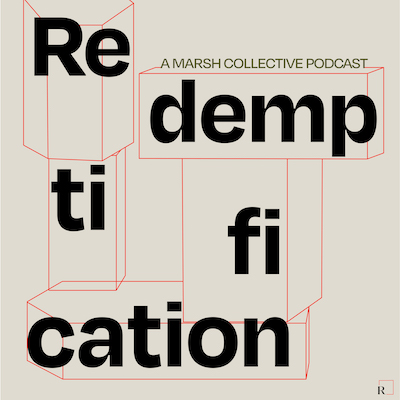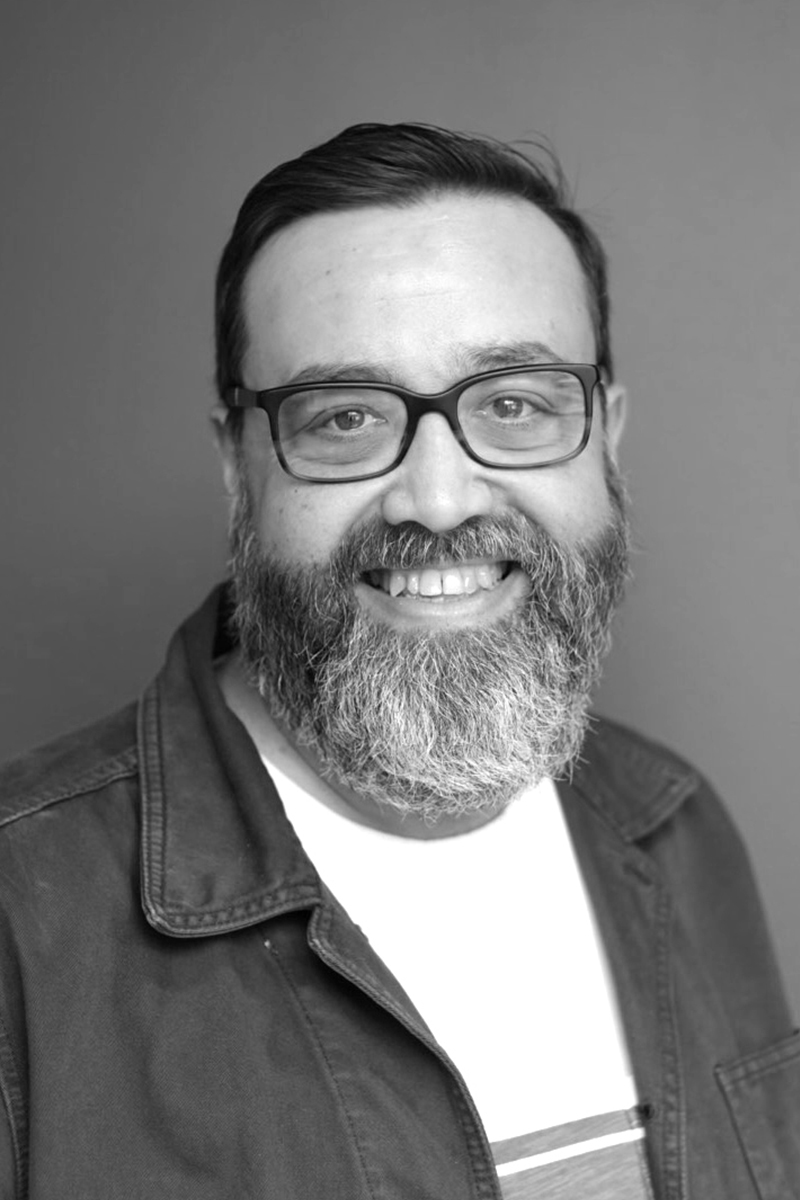Redemptive Work Requires Community with special guest Dave Blanchard
Dave Blanchard and John share a conversion about redemptive entrepreneurship & faith-driven work.
Dave is the co-founder and CEO of Praxis. Praxis is a venture-building ecosystem with a redemptive imagination, supporting founders, funders, and innovators motivated by their faith to address the major issues of our time. Dave’s experience & specialty lies in Redemptive Entrepreneurship, Design, and Startups.
Previously, Dave was a Principal Designer at IDEO and founded two companies in music and technology. He is a co-author of From Concept to Scale and a contributor to Praxis’ various publications on redemptive entrepreneurship. He has a BA from Babson College, an MBA & MEM from Northwestern, and lives in New York City, where Praxis is headquartered.
Insights & Inspirations
- Dave Blanchard (03:49): So when we hear on earth as it is in heaven, to us that’s redemptive. Okay, so let’s get to work together. And we think it requires community to do it. It’s not, it’s very hard to do this sort of thing on your own as the solo hero.
- John Marsh (04:41): When you say things clearly, you have worked on them diligently.
- John Marsh (06:13): I tell people, I said, if you don’t like what you’re reaping, you need to talk to the person handling the planting.
- John Marsh (08:42): I was thinking about tapestry and community is this way, is it tangled or woven? If it’s tangled, it looks unintentional, but woven is with intention.
- John Marsh (14:40): they kind of use mentorship, coaching, and even sometimes therapy and Christian counseling interchangeably. And what I’ve personally experienced, is mentorship is when there’s a relationship where someone shares wisdom from the journey that they live, they’re giving what they’ve been living.
- John Marsh (15:01): And so it has this framework, here’s what I experienced in this situation. Here’s when I had to close a business or here’s when I went through having to lay people off. They share stories and there’s wisdom of God embedded in their story to help you make decisions. Coaching seems to hold the environment and believe that if they ask courageous questions, you have the answers inside of you and they’ll bubble up. And then therapy seems to be dealing with specific issues of trauma and helping you work through those things.
- Dave Blanchard (19:27): to your last point too, on the therapy front, I would just encourage investors who are partnering with entrepreneurs to think about some of the traumas that they’re experiencing too. We don’t do that work, but we certainly look for chances to refer people or recommend say, Hey, whether it’s going to get a spiritual director or going to some serious therapy times. The entrepreneur is a, I think it’s as one I can say, I think we’re a troubled bunch, and that’s right. And we get ourselves into situations that only create more of it, and it’s our resilience.
- Dave Blanchard (24:17): I think outside perception and sometimes inside perception in the industry of why startups fail is they couldn’t find product market fit. So they just didn’t have the creative connective energy with the market or they couldn’t find the capital. They were trying to raise the money and they ran out or so on and so forth. The data actually shows that the majority of startups actually failed because of co-founder tension and people not being on the same page.
- Dave Blanchard (26:13): you mentioned decision making where some of that stuff really comes alive when there’s a perception of, hey, two co-founders, 50 50 partners, how do decisions get made? This is an area again, where I think we have a lot to learn in the entrepreneurial world from marriage and where if we are as least as Christian entrepreneurs putting Christ at the center of our work we should be doing at the center of our marriage, I think that brings humility to that process. If we are, at least as Christian entrepreneurs, putting christ at the center of our work, it brings humility to that process. It asks for us to not go on our own human wisdom, but submit to the Lord in prayer these major decisions we are undertaking.
- John Marsh (29:56): it seems like a lot of people are doing real estate and put redemptive on it, but I can’t see that there’s any meat underneath that.
- Dave Blanchard (34:02): I think to the point of redemptive real estate, it’s love is in the people, it’s in the place, it’s in the product, and there’s plenty of opportunities to deliver it as a thing that just requires heart, I think at the end of the day.
- Dave Blanchard (40:44): And so one of the ways we’re doing that here in the near future is kind of relaunching this thing called the Redemptive Innovation Studio, where we’re going to bring together folks for these conversations. We’re going to have entrepreneurs and residents who are thinking about what’s next for them. Oftentimes serial entrepreneurs who want their next project to be in that more in that kind of redemptive moonshot category, if you will. And really just try to continue to cultivate an environment out in the world where when a Christian entrepreneur comes of age, whenever that age is, whether it’s 12 or 40, they’re like, oh, here’s a method.
Information & Links
- Connect and learn more about what we do at https://www.marshcollective.com/
- Connect with Marsh Collective on LinkedIn
- Connect with Marsh Collective on Facebook
- Dave Blanchard – LinkIn
- Dave Blanchard – Praxis
- Praxis
- Praxis Redemptive Framework
- Praxis – Ben Bohannon
- UpSmith – Wyatt Smith
- Immerse Arkansas – Eric Gilmore
Closing Questions
What have you read that we should read?
- I’ll go with a lesser known favorite of mine, a huge fan of a book called Alternative to Futility, which was written in 1949 by Elton Trueblood, who is, I think he was a Quaker Pass pastor that end up advising presidents and all sorts of things.
- Alternative to Futility by Elton Trueblood
Who do you know that we should know?
- Multi-time Praxis fellow by the name of Jonathan Robinson down in Birmingham, Alabama. Jonathan has started in a company called Hire, and their purpose and focus is I think very important in our time. So he basically said, okay, what is Amazon doing to local communities and local business and what are we going to do about that?
- Praxis Labs – Higher
- Jonathan Robinson – LinkedIn
Where have you been that we should go?
- So a particular passion of mine is snorkeling. I’ve always felt like the strongest apologetic for faith in the world is beauty. And I think if we go underwater and we see that underwater, God has done this marvelous, just amazing thing with everything, and we can’t even see it most of the time. You just kind of get the idea for the extravagance of God’s capacity as a creator, his care for the earth, his joy that he must have in us going around the corner and seeing that beautiful fish or that turtle floating through the ones.




